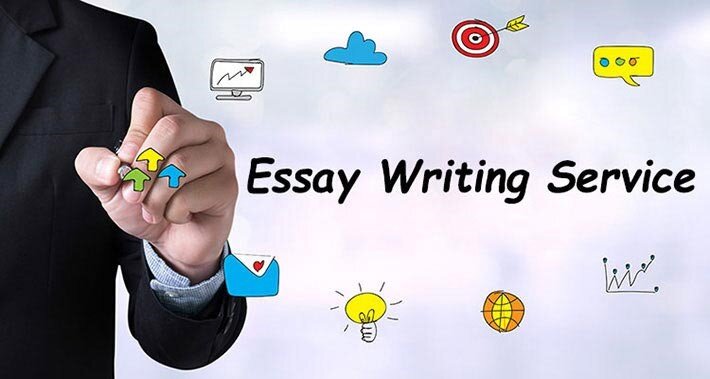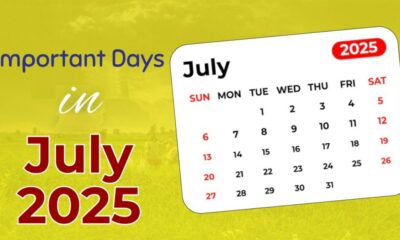Startup
Powerful Vocabulary for Weaving Ideas into Essays

In essay writing, the mastery of vocabulary is akin to wielding a powerful tool that transforms your thoughts into compelling narratives. The choice of words not only influences the clarity of your ideas but also shapes the overall impact of your essay. This article explores the art of selecting and incorporating powerful vocabulary to enhance the depth and sophistication of your essays. From selecting precise verbs to employing vivid adjectives and transitioning seamlessly between ideas, we’ll delve into practical strategies that elevate your writing and captivate your readers. If you find yourself seeking additional support in refining your vocabulary or polishing your essay, reputable essay writing service can provide valuable assistance. These services often offer expertise in language and composition, ensuring that your choice of words aligns seamlessly with the intended impact of your writing.
Choose Vivid and Precise Verbs
The cornerstone of powerful vocabulary lies in the selection of verbs that vividly convey the intended action. Opt for specific verbs that paint a clear picture of the activity, avoiding generic or overused alternatives. For example, replace “make” with “forge,” “complete” with “accomplish,” or “talk” with “discuss.” This precision not only enriches your language but also lends a dynamic quality to your writing.
Embrace Evocative Adjectives
Elevate your descriptive prowess by incorporating evocative adjectives that evoke a sensory experience in the minds of your readers. Instead of relying on commonplace adjectives, delve into a thesaurus to discover alternatives that infuse your descriptions with nuance and vibrancy. For instance, replace “good” with “exemplary,” “bad” with “detrimental,” or “happy” with “ecstatic.” This nuanced language adds depth to your writing, making it more engaging and memorable.
Utilize Precise Nouns for Clarity
The choice of nouns plays a pivotal role in conveying specificity and clarity. Opt for precise nouns that encapsulate the essence of the subject matter. Rather than using generic terms, such as “thing” or “object,” employ nouns that provide a clear identity. For example, replace “thing” with “artifact,” “object” with “phenomenon,” or “place” with “locale.” This precision enhances the clarity of your writing and enables readers to grasp your ideas with greater accuracy.
Employ Dynamic Adverbs Judiciously
While adverbs can add nuance to your writing, their overuse can dilute their impact. Choose adverbs judiciously, selecting those that precisely convey the manner in which an action is performed. Instead of relying on generic adverbs like “quickly” or “slowly,” consider alternatives such as “briskly,” “furtively,” or “deliberately.” This targeted use of adverbs adds sophistication to your language without sacrificing conciseness.
Craft Smooth Transitions with Cohesive Words
Seamless transitions between ideas are essential for maintaining the flow of your essay. Incorporate cohesive words that guide readers through your argumentative journey. Words such as “furthermore,” “moreover,” “in addition,” or “conversely” signal shifts in thought and enhance the logical progression of your ideas. Thoughtful deployment of these words ensures that your essay reads as a cohesive and interconnected narrative.
Invoke Rhetorical Devices for Emphasis
Rhetorical devices are powerful tools for emphasizing key points and creating a lasting impact on your readers. Experiment with devices such as alliteration, anaphora, or parallelism to add rhythm and resonance to your prose. For example, consider the impact of the repetition in Martin Luther King Jr.’s iconic phrase: “I have a dream.” Such devices infuse your writing with a memorable quality and elevate it beyond mere conveyance of information.
Employ Metaphors and Similes for Vivid Imagery
Metaphors and similes are potent devices for infusing your writing with vivid imagery. They draw parallels and comparisons, making abstract concepts more tangible. Instead of straightforward descriptions, use metaphors and similes to evoke emotions and enhance understanding. For instance, replace a simple comparison with a metaphor like “time is a relentless river” to convey the inexorable passage of time. When aiming for precision and creativity in your use of metaphors and similes, consulting guides or examples from the best essay writing services can provide valuable insights.
Inject Variety with Idiomatic Expressions
Idiomatic expressions add a touch of familiarity and authenticity to your writing. However, use them judiciously, ensuring they align with the tone and formality of your essay. Incorporate expressions that resonate with your audience, injecting a conversational element without compromising the overall professionalism of your writing.
Anticipate and Address Counterarguments with Precision
To bolster your persuasive prowess, anticipate and address counterarguments with precision. Utilize words and phrases that demonstrate a comprehensive understanding of opposing viewpoints. Employ phrases like “some may argue,” “however,” or “on the contrary” to acknowledge alternative perspectives while reinforcing the strength of your own argument.
Conclude with Impactful Closing Statements
Leave a lasting impression on your readers by crafting impactful closing statements. Choose words that resonate with the overarching theme of your essay and provide a sense of closure. Avoid generic conclusions and opt for statements that leave a lingering thought or call to action. This ensures that your essay concludes on a memorable note, leaving a lasting impact on your audience.
Conclusion
In conclusion, the mastery of powerful vocabulary is a skill that transforms your essays from mere conveyors of information to captivating narratives. By selecting vivid verbs, embracing evocative adjectives, and employing precise nouns, you enhance the richness and clarity of your language. Thoughtful use of adverbs, cohesive words, and rhetorical devices ensures a seamless flow of ideas. Metaphors, similes, and idiomatic expressions infuse your writing with vivid imagery and authenticity. Anticipating counterarguments and concluding with impactful statements elevate your essay to a level of precision and elegance that captivates and resonates with your audience. By integrating these strategies into your writing toolkit, you empower yourself to articulate ideas with sophistication, making your essays a powerful testament to your communication prowess.
-

 Sports4 weeks ago
Sports4 weeks agoFIFA Club World Cup 2025: Complete List of Qualified Teams and Groups
-

 Sports3 weeks ago
Sports3 weeks agoAl Ahly vs Inter Miami, 2025 FIFA Club World Cup – Preview, Prediction, Predicted Lineups and How to Watch
-
Health1 week ago
Back to Roots: Ayurveda Offers Natural Cure for Common Hair Woes
-

 Tech2 weeks ago
Tech2 weeks agoFrom Soil to Silicon: The Rise of Agriculture AI and Drone Innovations in 2025
-

 Sports3 weeks ago
Sports3 weeks agoFIVB Men’s Volleyball Nations League 2025: Full Schedule, Fixtures, Format, Teams, Pools and How to Watch
-

 Science4 weeks ago
Science4 weeks agoEverything You Need to Know about Skywatching in June 2025: Full Moon, New Moon, Arietid Meteors, and Planetary Marvels
-

 Startup3 weeks ago
Startup3 weeks agoHow Instagram Is Driving Global Social Media Marketing Trends
-

 Television4 weeks ago
Television4 weeks agoTribeca Festival 2025: Date, Time, Lineups, Performances, Tickets and How to Watch















